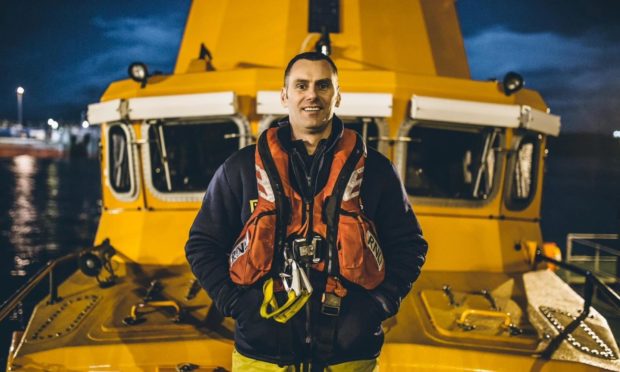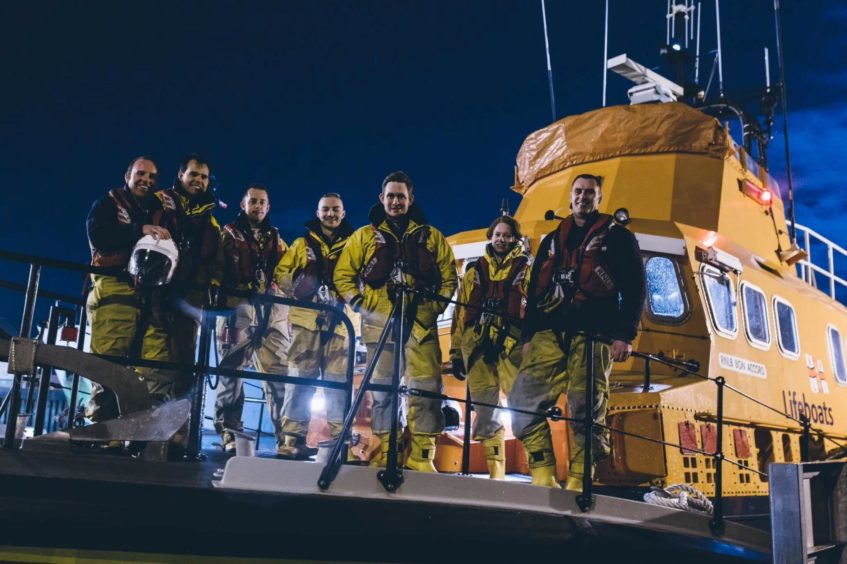Preserving human life in treacherous North Sea conditions isn’t something that many of us would readily sign up for – but Davie Orr has done it week in, week out for more than two decades.
As a coxswain he is the man responsible for steering lifeboats into the black inky night in search of the lost, the injured or the sick in hope of returning them safely to land.
In his time with the Royal National Lifeboat Institution (RNLI) Mr Orr estimates he’s taken part in around 750 North Sea call outs – saving countless people in the process.
The 49-year old recently announced he will step down from his role as coxswain after 25 years.
‘What you need is to have a passion for what the RNLI is all about and to go to sea.’
“It’s time for a bit of a change”, he said, “so I’ve taken on a full-time time position as an RNLI trainer and assessor for lifeboats across Scotland and I won’t be able to crew the lifeboat any longer.”
Mr Orr, whose Merchant Navy father encouraged his interest in the sea, first joined the RNLI as a volunteer in 1995 before moving up the ranks to become coxswain in 2015.
He concedes that the impact of knowing a rescue call-out can come at any time 24/7 has been “quite trying” on his family, but adds that it’s simply part of the responsibility.
“Sometimes its horrible conditions we go out in, so you have to have an ability to handle that and still focus on the job at hand”, Mr Orr said.
“What you need is to have a passion for what the RNLI is all about and to go to sea.
“We can get ten shouts over a two week period and then nothing for three months – you can never guess when it’s going to happen.
“Aberdeen harbour is a very busy one with ferries and the offshore industry working in and out so there is a good need to have the lifeboat here to serve the community.”
As deputy coxswain, Mr Orr was involved in rescue mission after a helicopter had to ditch in the North Sea, 30 miles east of Aberdeen, in 2012 – which he described as a “something he won’t forget”.
“As I remember it, something indicated inside the helicopter that things weren’t right and the procedure was to land immediately”, Mr Orr explained.
“Thankfully everything went according to plan and they landed nicely on the surface and just waited for the lifeboat and rescue helicopter to meet them and get them back in.
“When we got there a lot of the crew from the helicopter had evacuated into life rafts.
“The rescue helicopter had arrived but some didn’t fancy getting into another helicopter so we took them back in on the lifeboat – it was quite an experience.”
Mr Orr, who lives in Bridge of Don, also helped tow a Scandinavian barge that had got into trouble off the coast of Montrose to safe haven last year, which he described as a “mammoth task”.
He said: “We get such a variety of call out types because we can take injured and sick people, missing people, people who’ve fallen as well as helping with boats that have broken down – it’s such a mixture.
“We had a fairly lengthy call out to an old barge – like an ancient thing that was being sailed across the North Sea.
“The first lifeboat there went out and towed them in for about eight or nine hours before handing them over to us who towed them for around 11 hours where we handed them into Peterhead because weather conditions were bad at Aberdeen – but we got the crew back safe.”

